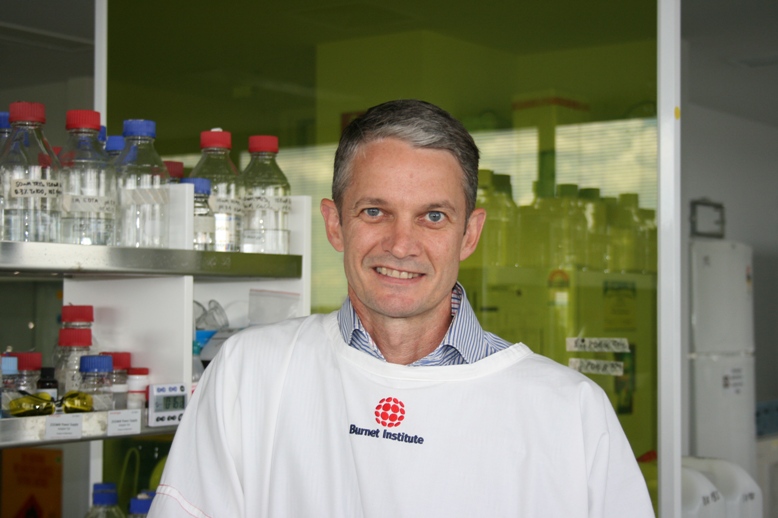Spotlight on the Burnet Institute
19 January 2016
Burnet Institute is an unaligned, not-for-profit, independent organisation that links medical research with public health action, recognising that solutions to many of the major global health problems require comprehensive and innovative responses.
These include novel discoveries such as the development of new vaccines and diagnostic tests, and the better use of existing best-practice health interventions to improve the health of disadvantaged, poor and vulnerable communities.
Led by Director and CEO Professor Brendan Crabb AC (pictured below), Burnet is the only Australian organisation accredited with both the Australian National Health and Medical Research Council (NHMRC) and the Department of Foreign Affairs and Trade.


Based in Melbourne with offices in Myanmar, Papua New Guinea and Lao PDR, Burnet is actively involved in research and project activities in other Asia and Pacific countries.
With more than 380 staff involved in research and public health programs, Burnet’s expertise lies in specific infectious diseases of global health significance such as HIV, hepatitis viruses, malaria, tuberculosis, influenza, and emerging infectious diseases.
Burnet scientists and researchers are studying the immune responses to these diseases and developing therapies to these infections and other human diseases including some cancers.
Burnet also focuses on drug and alcohol use, both in addressing risky behaviours associated with transmission of infectious diseases and as major health problems in their own right. The Institute is unique in its linking of laboratory-based medical research with field-based public health programs aimed at creating a healthier world.
Burnet’s approach to address complex health issues is to generate new knowledge and health intervention tools, and apply the best available evidence to community-level public health programs.
Burnet’s laboratory and field research is fostered in three Centres of excellence:
· The Centre for Biomedical Research brings together more than 120 leading virologists and immunologists
· The Centre for Population Health focuses on innovative approaches and research translation to tackle key health issues affecting Australians
· The Centre for International Health combines technical expertise in international public health with in-country research and health programs across the Asia and Pacific region.
Underpinning the research focus are cross-Institute health themes:
· Infectious Diseases
· Immunity, Vaccines and Immunisation
· Maternal and Child Health
· Alcohol, Other Drugs and Harm Reduction
· Sexual and Reproductive Health
· Young People’s Health
In 2016 Burnet Institute will celebrate its 30th anniversary year being founded in 1986. The Institute is named in honour of distinguished virologist and immunologist Sir Macfarlane Burnet OM, AK, KBE who received the Nobel Prize for Medicine in 1960.

